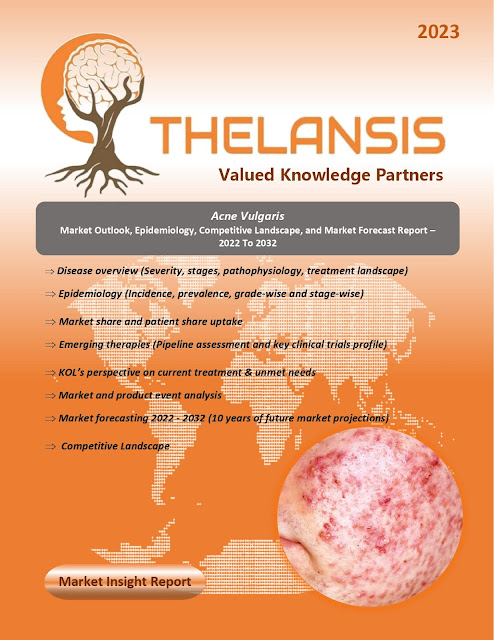Afibrinogenemia – Market Outlook, Epidemiology, Competitive Landscape, and Market Forecast Report – 2023 To 2033
Afibrinogenemia, also called congenital afibrinogenemia, is a rare blood disorder that affects the body's ability to clot. Afibrinogenemia is caused by deficient synthesis of fibrinogen (coagulation factor I) in liver cells resulting from a mutation in fibrinogen genes alpha (FGA), fibrinogen genes beta (FGB), fibrinogen genes gamma (FGG). Its deficiency leads to severe bleeding and hemorrhaging when an injury occurs, and bleeding can occur anywhere in the body, including the skull. In afibrinogenemia, with fibrinogen levels less than 0.1 g/L, bleeding abnormalities range from mild to severe. Symptoms of afibrinogenemia often appear at birth and may include prolonged bleeding from the umbilical cord stump. Early diagnosis is important for proper surveillance and treatment. Milder forms of the condition, called hypofibrinogenemia or dysfibrinogenemia, are associated with some residual fibrinogen function. Women with afibrinogenemia have an increased risk of vaginal bleeding and miscarriages.
- The prevalence of afibrinogenemia is approximately one in 1,000,000, making the bleeding disorder much rarer than either type of hemophilia and challenging to diagnose.
Thelansis’s “Afibrinogenemia Market Outlook, Epidemiology, Competitive Landscape, and Market Forecast Report – 2023 To 2033" covers disease overview, epidemiology, drug utilization, prescription share analysis, competitive landscape, clinical practice, regulatory landscape, patient share, market uptake, market forecast, and key market insights under the potential Afibrinogenemia treatment modalities options for eight major markets (USA, Germany, France, Italy, Spain, UK, Japan, and China).
KOLs insights of Afibrinogenemia across 8 MM market from the centre of Excellence/ Public/ Private hospitals participated in the study. Insights around current treatment landscape, epidemiology, clinical characteristics, future treatment paradigm, and Unmet needs.
Afibrinogenemia Market Forecast Patient Based Forecast Model (MS. Excel Based Automated Dashboard), which Data Inputs with sourcing, Market Event, and Product Event, Country specific Forecast Model, Market uptake and patient share uptake, Attribute Analysis, Analog Analysis, Disease burden, and pricing scenario, Summary, and Insights.
Thelansis Competitive Intelligence (CI) practice has been established based on a deep understanding of the pharma/biotech business environment to provide an optimized support system to all levels of the decision-making process. It enables business leaders in forward-thinking and proactive decision-making. Thelansis supports scientific and commercial teams in seamless CI support by creating an AI/ ML-based technology-driven platform that manages the data flow from primary and secondary sources.




Comments
Post a Comment